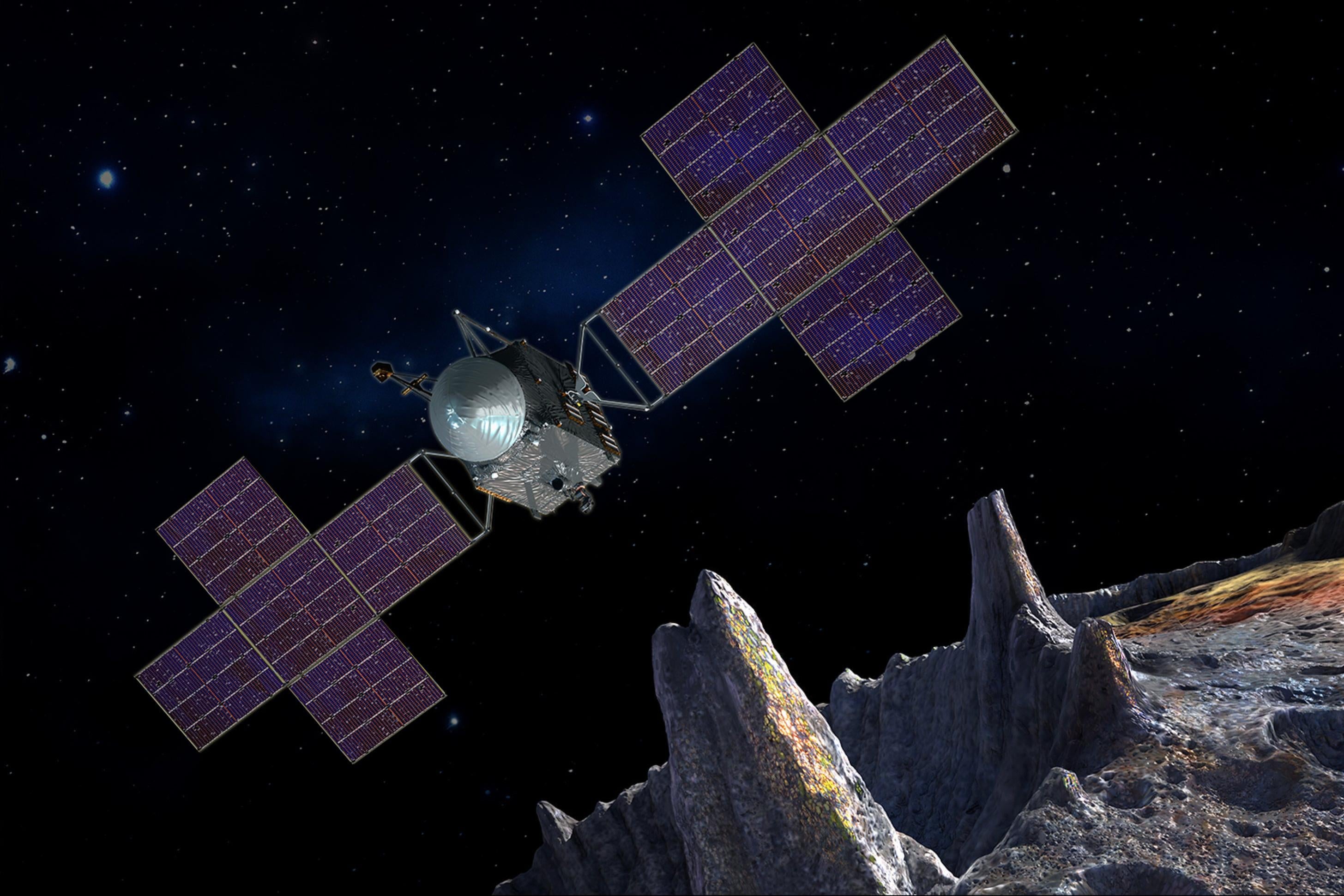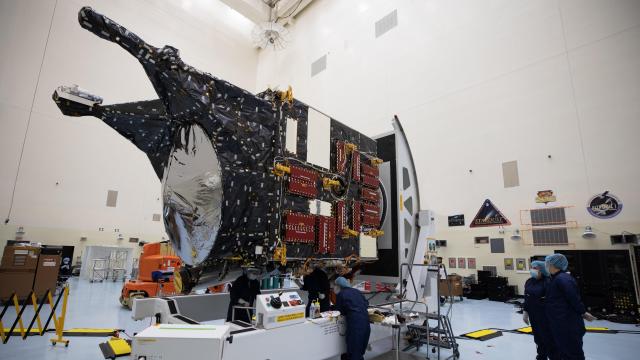NASA announced late last week that the long-awaited mission to Psyche, a nearby metal-rich asteroid, will not launch this year. The next possible launch windows for the spacecraft are in 2023 and 2024, meaning that NASA won’t arrive at the asteroid until 2029 at the earliest.
Psyche, an asteroid about 1% the size of Earth’s Moon, orbits the Sun between Mars and Jupiter. Composed mostly of nickel and iron, Psyche appears to be the core of a planetesimal — a fundamental building block of a planet. That makes it an intriguing subject for planetary scientists keen to learn more about how all planets form.
The Psyche spacecraft (named for the asteroid it will eventually orbit) was supposed to launch this year. During a press conference last week, NASA officials said that delays involving the spacecraft’s flight software and testing equipment mean that testing of the spacecraft can’t be done before the launch window closes on October 11.
“Flying to a distant metal-rich asteroid, using Mars for a gravity assist on the way there, takes incredible precision. We must get it right. Hundreds of people have put remarkable effort into Psyche during this pandemic, and the work will continue as the complex flight software is thoroughly tested and assessed,” said Laurie Leshin, the director of NASA’s Jet Propulsion Laboratory, in an agency release. “The decision to delay the launch wasn’t easy, but it is the right one.”
The software in question will be used to control the Psyche spacecraft’s orientation and trajectory towards its target, and its ability to send and receive data to and from Earth. Needless to say, it’s the sort of thing you want to test exhaustively before doing the real launch.

The spacecraft was originally planned to launch in August, but that date was pushed back to September due to a compatibility issue in the software; though that issue has been rectified, final tests now cannot be completed before the launch window closes.
“We have conquered numerous hardware and software challenges, and we’ve been stopped in the end by this one last problem,” said Lindy Elkins-Tanton, a planetary scientist at Arizona State University and Psyche’s principal investigator, in the same release. “We just need a little more time and will get this one licked too.”
Launch windows are vital for any mission to distant objects, as their distance from Earth can vary drastically as these objects revolve around the Sun. Missing a launch window can push a mission back years, as is now evidenced by the Psyche situation — we could’ve made it to the asteroid by 2026, but now arrival will be closer to 2030.
The delay also complicated the launch of two projects that were planned to piggyback on the SpaceX Falcon Heavy rocket that was to carry Psyche into space this fall. Those ride-along missions — the Janus mission and the Deep Space Optical Communications tech demo — are now being assessed for alternative launches.
More: NASA’s Delayed Psyche Launch Presents Major Headache for Ride-Along Mission
